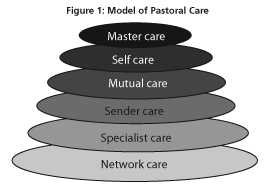Categories: Articles (EMQ), EMQ, Section
Related Articles
How to Avoid Ethical Traps in Treating Hurting Staff
How boards provide member care is as significant as the service.
Upgrading Member Care: Five Stones for Ethical Practice
Providing ethical and responsible member care to mission/aid staff is crucial to the health and well-being of both the individual and the organization.
Upgrading Member Care: Five Stones for Ethical Practice
Providing ethical and responsible member care to mission/aid staff is crucial to the health and well-being of both the individual and the organization.
Beyond Welcome Home! Ten Things You Need to Know about Reentry
Whether we reenter from a long assignment abroad, a short-term mission trip, a week of vacation, or even a conference, we need to know how to reenter well. Reentry is an often overlooked part of the transition process.
Pastoral Care of Missionaries: Turning Theory into Practice
A case study of how the Church Missionary Society of Australia has worked to develop a model of best practice in the pastoral care of missionaries.

